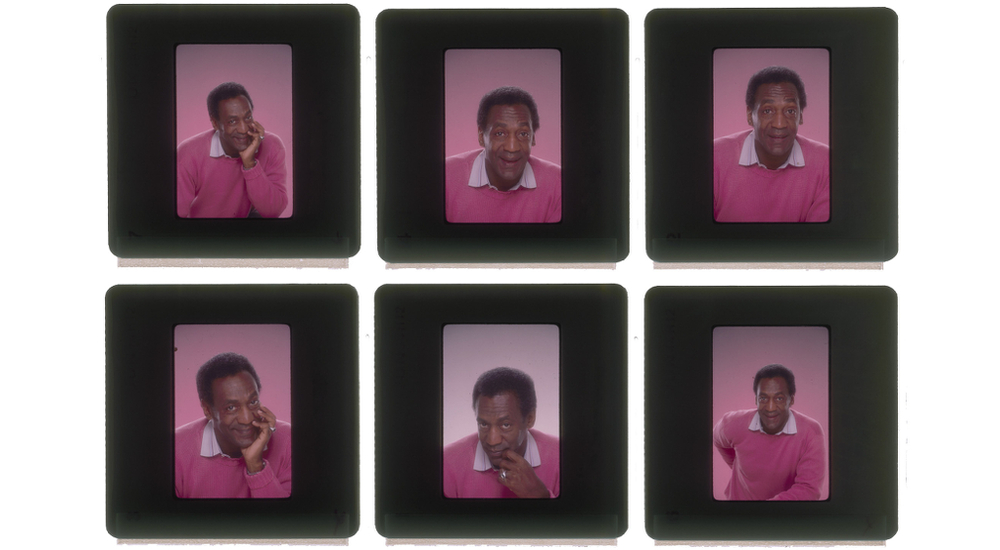We Need to Talk About Cosby is an essential documentary about one of the greatest comedians and worst sexual predators in history. While the film has no huge "gets" in terms of interviews, the ones included are frank and often devastating. While the project might seem exhausting at four hours, each part is perfectly paced, chronicling Bill Cosby's rise as a comedian, educator and TV star. Critically, there's no era of his celebrity that's not tainted by accounts of horrific sexual assault.
"Part 1" covers his early years as a promising stand-up, even becoming the first Black comic to play on Jack Paar's Tonight Show. But he quickly distinguished himself from contemporaries like Dick Gregory and Lenny Bruce, putting forth a squeaky clean image and pleasant comedy. Still, he was a frequent fixture at Playboy Clubs across the country. The documentary broadens its scope here, showing a clip from the Today Show in which Barbara Walters went undercover as a Bunny. When her longtime colleague Hugh Downs makes a gross comment after the segment, Walters' face tells you everything you need to know. Objectification of women is old business.
In the 1970s, things get thornier and the documentary grows even more compelling. Using his vast fortune and fame, Cosby turned his sights on education. Appearing on The Electric Company and Captain Kangaroo, he became a favorite of children. That love grew deeper with the launch of Fat Albert. He also attended grad school, though it's unclear if he earned or "bought" his degrees with lavish donations. But he also allegedly used these opportunities to drug and assault women on these campuses and at the venues he frequently performed at. Crucially, the documentary includes observations from experts on illicit substances and sex.
The third episode is arguably the weakest, if only because there's only so many ways you can hear that Cosby was like "America's Dad" once The Cosby Show premiered. While it can't be overstated what a massive success the show was, the underlining of this specific era doesn't have quite the impact expected. What does is the story of an extra who claims she was assaulted in her dressing room. There's some perfect editing here, as a former cast member recalls having to share a dressing room for most of the show's run. Clearly, it's odd a guest star with only a few lines has her own private dressing room, where only Cosby comes to visit. Her story shares horrifying similarities with other victims.
Cosby had a lot in common with Harvey Weinstein. His misdeeds were chronicled in Untouchable, which premiered at Sundance three years ago. That film felt hastily assembled with little larger context. This gives the saga room to breathe, putting the upsetting details in their proper place. Both men had a method to lure women, and people clearly enabled them to do such awful things for decades. Any time a story cropped up about bad behavior, they would get the story killed or defame the reporter. Their power seemed limitless.
In the final segment, Cosby's star has waned and he's no longer universally beloved. His infamous "Pound Cake" speech at an NAACP dinner turned off a lot of African-Americans, particularly the younger generation. But he still wielded tremendous power. Before women came forward in huge numbers in 2014 and 2015, he was set to have another new sitcom at NBC, even when the network president knew of and dismissed prior allegations. Protecting women took a backseat to possible ratings gold. Cosby eventually got his day in court, but his conviction was overturned. A legal expert explains that this development was a great victory for Americans' constitutional rights, while still dealing a blow to victims hoping for justice.
The honesty of some participants is particularly striking, as many admit they didn't necessarily believe Cosby's accusers since most where white. (There's a long, ugly history of white women falsely accusing Black men of sexual violence.) But when Beverly Johnson shares her story on The View, many finally understand what a monster he must have been for decades. Especially troubling is when one panelist theorizes that if the number of public accusers topped out around 60 women, there are likely twice as many who still felt uncomfortable coming forward or even took their stories to the grave.
This four-part documentary is never easy to watch, but its tremendously put together, showing us a clear picture of a man who did so much good but used it to mask so much evil.

